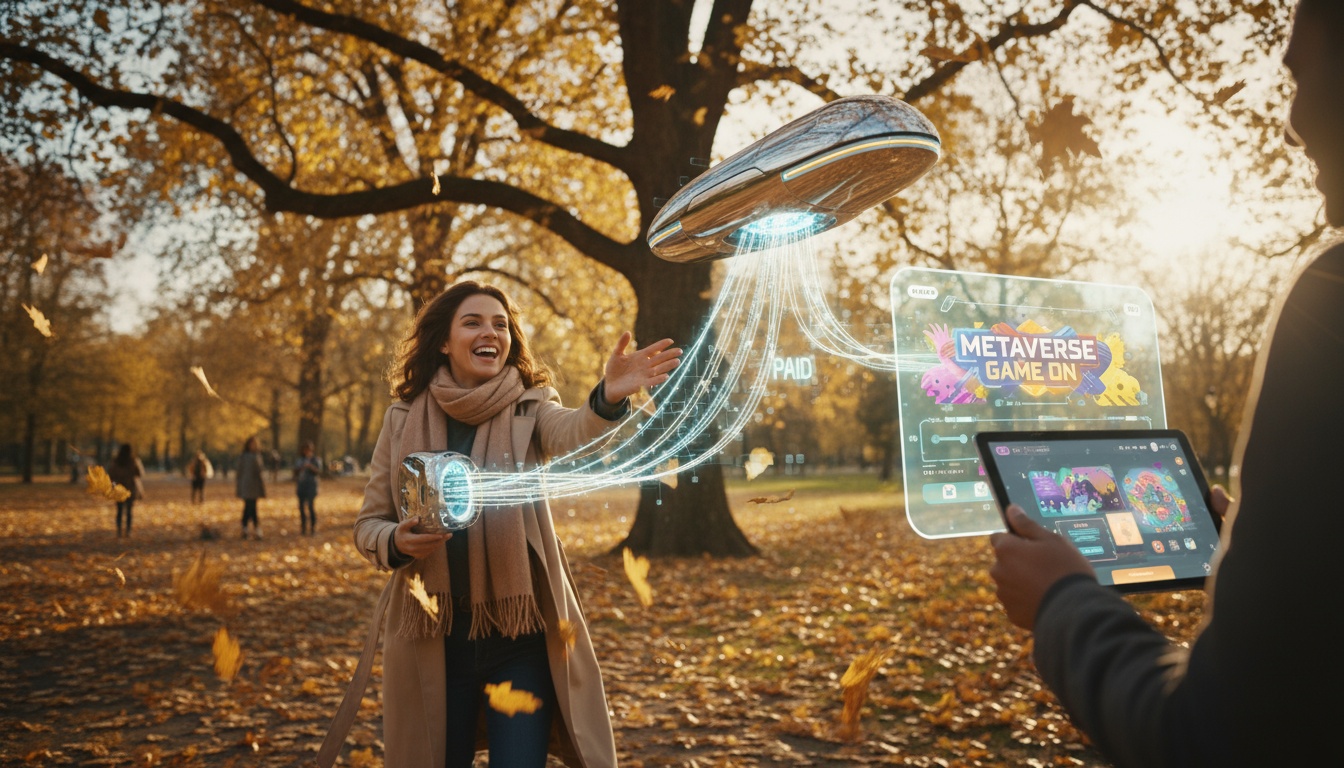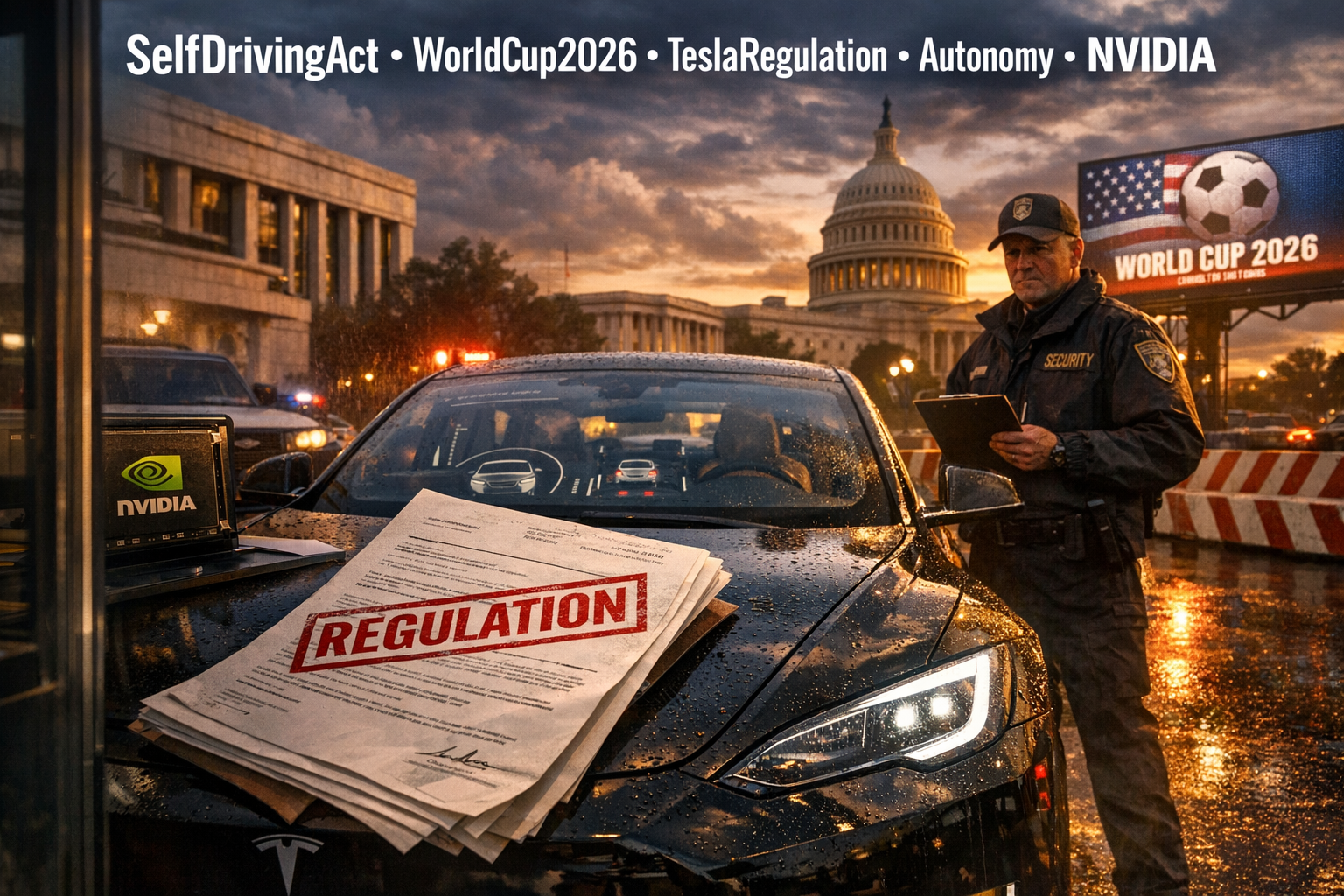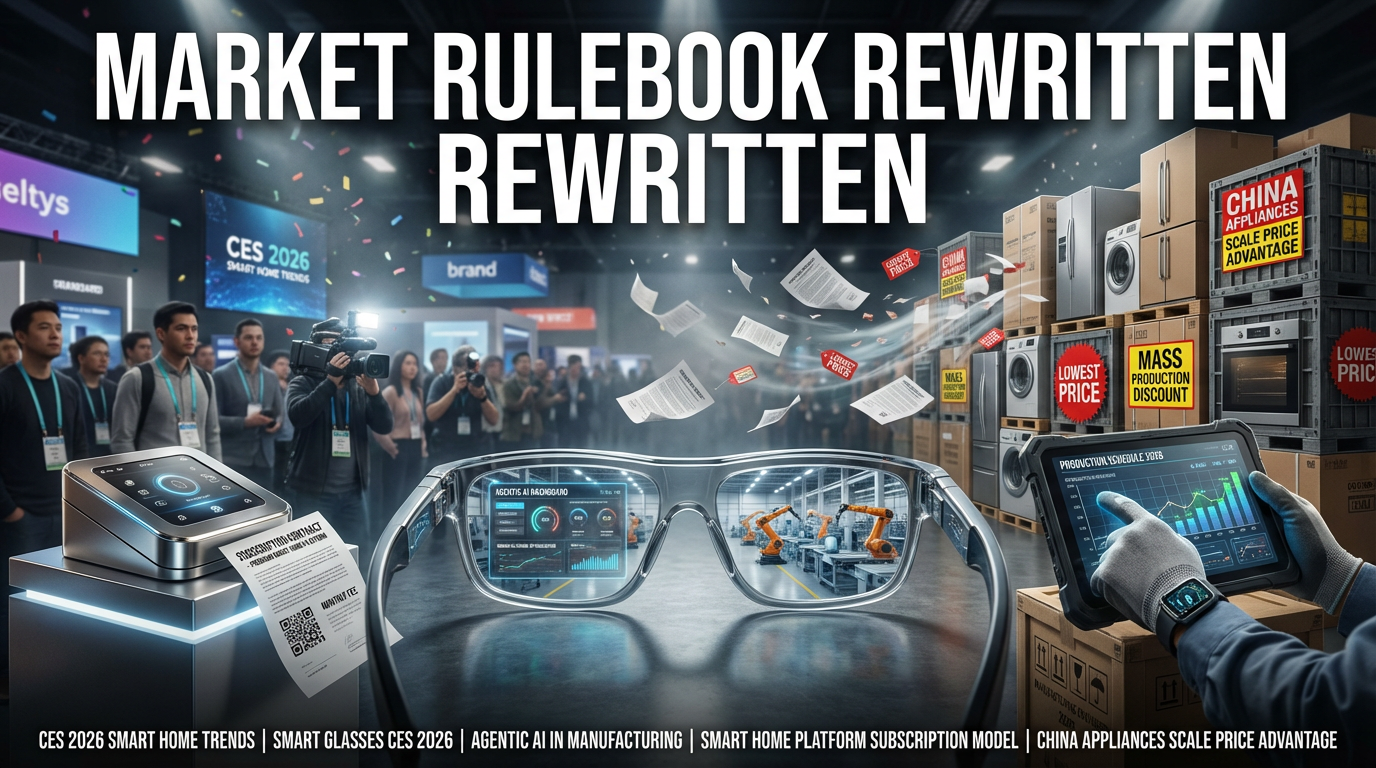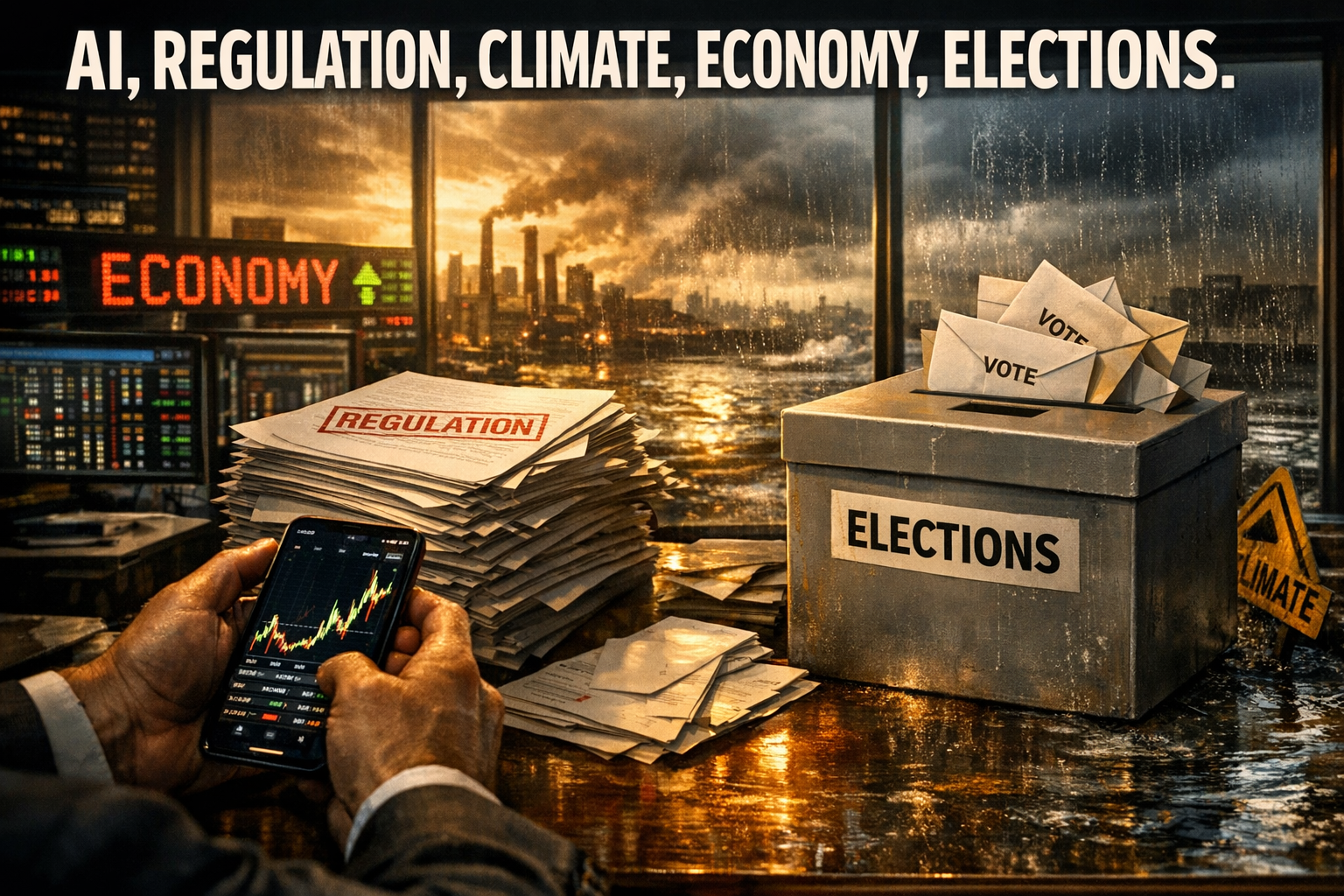● Revolutionizing Commerce with AI Agents
Headless Commerce and the Agent Revolution: Economic Paradigm Shift in the Era of Platforms and AI
In this article, we delve deeply into how AI agents are transforming the shopping ecosystem, the innovative changes that will reshape platform businesses alongside headless commerce, the emergence of the agent economy, and the innovation of creation costs in gaming and the metaverse.
Headless Commerce and Platform Change
With the advent of AI agents that shop on behalf of customers, questions are being raised about the role of traditional commerce platforms.
Existing platforms like Naver Store and Coupang have relied on amassed traffic, but as consumers access product pages directly through AI agents, we may enter an era of ‘faceless headless commerce.’
Brands are increasingly likely to meet consumers through their own brand agents without going through platforms, leading to a projected shift in SEO strategies toward a new discovery model based on ‘GEO.’
This change will have a significant impact on both the existing platform economy and the global economy, encapsulating key innovation keywords of the 4th Industrial Revolution: AI, economy, innovation, platform, and SEO.
Emergence of the Agent Economy and Transaction Innovation
The rise of AI agents that connect consumers directly with suppliers has led to the emergence of a new agent economy.
Now, transactions for information and task execution through micro-payments among agents are becoming possible, and new payment infrastructures supporting machine-to-machine transactions and blockchain technology are gaining attention.
In particular, transactions among agents where existing payment gateways cannot intervene necessitate a redefinition of consumer protection and identity management systems, signaling a paradigm shift in the global economic system.
Innovation of Creation Costs in Gaming and the Metaverse
The integration of AI technology in game development and the metaverse ecosystem is expected to dramatically lower creation costs and usher in an unprecedented era of content production.
In the past, creating games required a massive workforce and budget, but now, it has reached a point where anyone can easily create games in just a few hours.
As already implemented on platforms like Roblox, AI-based game creation tools will enable anyone to create their own games and metaverse spaces.
In this process, creative content and the entertainment industry are likely to emerge anew, representing another success story of economic and technological innovation.
Impact on Economy and the 4th Industrial Revolution
The advancement of AI and agent technologies influences not only changes in the shopping environment but also the overall global economy and the flow of the 4th Industrial Revolution.
The platform economy and existing SEO-centered search and digital marketing strategies will be restructured into GEO- and AI-based personalized data matching.
This will lead both consumers and businesses to reconsider their cost structures and business models, making it essential to develop strategies to prepare for the future.
Additionally, technological innovation is expected to reshape the competitive landscape between existing large platforms and small startups, resulting in significant changes to traditional market orders.
[ Summary ]
As the era of headless commerce led by AI agents arrives, traditional platform economies and SEO strategies are undergoing rapid changes.
The agent economy is driving machine-to-machine transactions and new payment infrastructures, which are likely to have a significant impact on the global economy and the flow of the 4th Industrial Revolution.
Furthermore, AI-based gaming and the metaverse will dramatically lower production costs, bringing innovation to the creative industry.
Ultimately, businesses will need to quickly adapt to these changes and seek new business models.
[Related Articles…]
*Source: [ 티타임즈TV ]
– 에이전트가 돌아다니며 쇼핑하면 네이버, 쿠팡은 어떻게 될까? (허진호 박사)
● Son Heung-min’s Stunning Move to LAFC, Economic Shift, Global Investment Impact
Son Heung-min’s Move to the U.S.: Economic Strategies and Changes in the Global Sports Market
Key News Summary
The transfer of Son Heung-min to LAFC has been recognized with a value of over 35 billion won, and this article analyzes the decisive reasons from perspectives of economic outlook, global economy, investment strategies, the fourth industrial revolution, and AI trends.
This article elaborates on the attractiveness of the U.S. soccer market, Son Heung-min’s decisions in the latter part of his career, and the economic impacts linked to changes in sports marketing.
It is structured to encourage readers to reflect on the latest economic trends, global investment strategies, and the economic outlook in the era of the fourth industrial revolution.
New Economic Horizons in the U.S. Soccer Market
The Major League Soccer (MLS) has traditionally had a limited fan base, but recently, the import of various foreign stars has brought significant changes to the market’s excitement.
In particular, the demographics of California’s large cities and Korean community provide substantial merit from a sports marketing perspective.
In this context, from an investment strategy viewpoint, entering the U.S. market is not just about signing players but also plays an important role in the global economic outlook.
The Background of Son Heung-min’s Decisive Choice
Son Heung-min opted for the U.S. over Europe at this turning point in his career to optimize for significant events like the World Cup.
Considering the economic outlook and the athlete’s personal brand value, the stability and high investment outlook of the U.S. league stand out compared to other leagues like Saudi Arabia or Turkey.
Moreover, planning for celebrity and business activities post-retirement, the attractive environment to leverage networks in the U.S. market has influenced his decision.
Connection Between Sports Marketing and Economic Trends
Son Heung-min’s transfer to the U.S. is not simply a news item in the soccer world but provides insights into global economic trends and investment strategies.
The MLS has strengthened its connection with the rise in domestic interest in soccer and automated investment consideration, integrating AI technology into data analysis, enhancing the linkage with the fourth industrial revolution and AI trends.
These factors could serve as key drivers for future growth in not just soccer, but all sports industries.
Investment Strategies and Future Economic Outlook
From an economic outlook perspective, marketing related to player signings, broadcast rights, and advertising contracts are causing significant changes in investment strategies.
With the latest global economic trends and the intersection of AI trends, particularly in economic outlook analysis, big data and artificial intelligence technologies are redefining the future of the sports business.
Thus, Son Heung-min’s move to the U.S. can be assessed as not just an event in the soccer world but as a fusion of economics and the fourth industrial revolution.
Key Points Not Well Covered in the News
The move to the U.S. is not just a personal choice for the player, but it is deeply connected to career stability in the latter stages, plans for celebrity activities after retirement, and global economic investment strategies.
Furthermore, it is important to note that the MLS is evolving into a new sports business model combined with economic outlook, investment strategies, and AI trends beyond just soccer fandom.
This should be interpreted as a crucial change predicting the future of the global economy and the fourth industrial sector, going beyond simple transfer news.
[Related Articles…]Analysis of Son Heung-min’s Transfer | Changes in Global Economic Outlook
*Source: [ 지식인사이드 ]
– 팬도 돈도 없는 미국 축구가 손흥민한테 350억을 태운 이유 | 상국열차 EP.4 (박문성, 피터)
● OpenAI’s GPT-6 Sparks Controversy, Adult Content Policy Challenges Ethics
OpenAI’s GPT-6: Changes in AI Policy and New Economic Perspectives of the Fourth Industrial Revolution
GPT-6 Adult Content Controversy and Ethical/Safety Issues
Currently, OpenAI, which leads global economy and AI trends, has once again become a hot topic. With the relaxation of restrictions on GPT-6, the announcement of adult content provision challenges existing ethical and safety standards, sparking controversy. This decision emphasizes the autonomy of adult users and showcases the user-customized evolution of AI technology, a key aspect of the Fourth Industrial Revolution, but at the same time, careful approaches are necessary given the varying legal standards and cultural sensitivities across different countries. Industry experts are evaluating this as an “adult content strategy” and are closely monitoring potential impacts on user protection, personal data management, and the overall global economy.
The Aftermath of GPT-5 Launch and Research Credibility Issues
The various problems experienced post-launch of GPT-5 continue to leave residues within the industry and among consumers. Errors and inaccurate data during early demonstrations began to undermine trust, leading to sharper criticism at the time of the GPT-6 announcement. Criticism of GPT-5 burdened the role of AI development in innovation and global economic outlook, and the research team is focusing on how improved approaches and repeated patchwork can contribute to regaining trust.
The Fake “Mathematical Innovation” Incident and the Credibility of Research Results
The researchers’ fake announcement of “mathematical innovation” significantly damaged OpenAI’s credibility, entangled with the performance controversies surrounding GPT-5. This incident led to immediate condemnation from academia and industry due to the overestimation of problem-solving capabilities, prompting a reevaluation of the real value of AI technology. As a result, OpenAI is now rigorously reviewing clear data and transparent research results that demonstrate AI’s capabilities, as well as the economic impacts across industries.
Google Gemini’s Quiet Return and the AI Competitive Landscape
Meanwhile, Google is strengthening its position in the AI market through the Gemini series. Google is planning the release of Gemini 3.0 and is pursuing large-scale AI expansion through investments in its own chips and infrastructure. This represents a key example showing how the market is changing within the realms of AI, economic outlook, global economy, Fourth Industrial Revolution, and AI trends, encompassing crucial keywords reflecting technological competition and advanced industry development.
OpenAI’s Efforts to Minimize Political Bias and Policy Changes
With the release of GPT-6, OpenAI is introducing a new evaluation system aimed at maintaining political neutrality and balanced discourse. The model is shifting towards ensuring that conversations with users do not reveal specific political biases and that it fairly reflects a diversity of views. This change is expected to serve as a significant point in enhancing the credibility of economic forecasts at a time when the ethical issues of AI are becoming increasingly prominent within global economy and AI trends.
Key News and Lesser-Known Major Points
The latest news related to GPT-6 includes several lesser-known core points:• Potential conflicts of global legal and cultural issues arising from the provision of adult content and policies of various countries.• Impacts of early issues with GPT-5 on the long-term credibility of AI and the internal improvement efforts of the research team.• The data credibility issues revealed by the fake mathematical innovation incident and the redefinition of AI’s role.• Google’s strong competitive will shown through the expansion of technology and infrastructure investments in the AI market.• The potential impact of OpenAI’s new evaluation measures for minimizing political bias on future large-scale elections or social conflicts.
[Related articles…] Summary of GPT6 Controversy | OpenAI Policy Changes
*Source: [ AI Revolution ]
– GPT-6 Sparks Outrage: OpenAI’s Boldest and Most Controversial Move Yet



